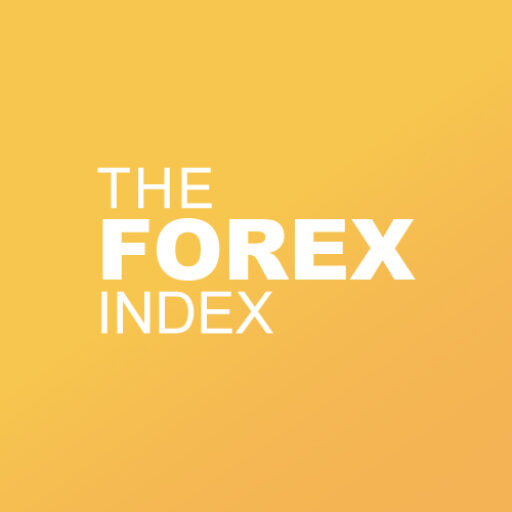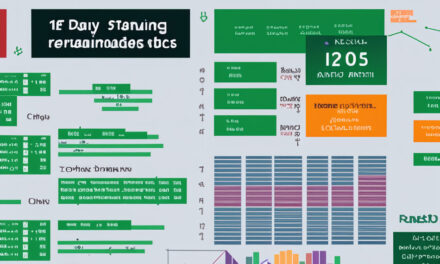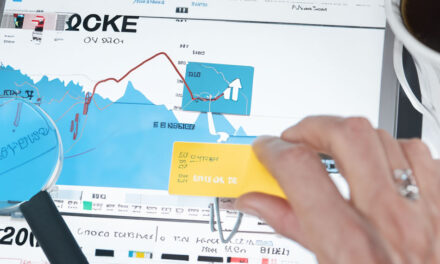Forex trading, the world’s largest and most liquid financial market, has been the subject of fascination for many aspiring traders. Its potential for wealth accumulation has drawn countless individuals to embark on an exciting journey of financial discovery. In this article, we will delve into the basics of forex trading, explore the strategies for success, and analyze both the risks and rewards involved in this thrilling pursuit. Additionally, we will immerse ourselves in the world of successful forex traders and draw inspiration from their remarkable stories.
Understanding the Basics of Forex Trading
Before diving headfirst into the world of forex, it is essential to understand the foundations that underpin this dynamic market.
Forex trading is a complex and exciting endeavor that requires a deep understanding of the global economy, financial markets, and various trading strategies. It involves buying and selling currencies with the aim of making a profit from the fluctuations in exchange rates.
But what exactly is forex trading? Forex, short for foreign exchange, is the marketplace where currencies are bought and sold. Rather than trading physical goods or assets, traders speculate on the value of one currency against another.
Imagine you are planning a trip to Europe, and you need to exchange your US dollars for euros. You walk into a currency exchange booth, and the exchange rate tells you how many euros you can get for your dollars. This exchange rate is constantly changing due to various factors, such as economic indicators, political events, and market sentiment.
Forex trading takes this concept to a whole new level. Instead of exchanging currencies for travel purposes, traders aim to profit from the fluctuations in exchange rates by buying a currency when they believe its value will rise and selling it when they anticipate a decline.
The Importance of Forex in the Global Economy
The forex market plays a crucial role in facilitating international trade and investment. It provides a platform for businesses, governments, and individuals to exchange currencies, enabling global commerce to thrive.
Think about it: when you buy a product from another country, you need to pay for it in the seller’s currency. This transaction involves converting your currency into the seller’s currency, and that’s where the forex market comes into play. It ensures that you can exchange your currency for the one you need to complete the transaction.
Moreover, forex trading allows companies to hedge against currency risks. Imagine a multinational corporation that operates in multiple countries. Fluctuations in exchange rates can significantly impact their profits. By engaging in forex trading, these companies can protect themselves from potential losses by strategically buying or selling currencies.
Additionally, governments participate in the forex market to manage their national currencies. They may intervene to stabilize their currency’s value, promote exports, or stimulate economic growth. Central banks often play a crucial role in these interventions, using their foreign exchange reserves to influence exchange rates.
Understanding the impact of forex on the global economy is essential for any aspiring trader. Economic indicators, such as GDP growth, inflation rates, and interest rates, can significantly affect currency values. Political events, such as elections or geopolitical tensions, can also have a substantial impact on exchange rates. By staying informed about these factors and analyzing market trends, traders can make more informed decisions and potentially profit from their trades.
The Journey Begins: Getting Started in Forex
Embarking on a forex trading journey requires careful planning and preparation. Here are the initial steps to set you on the right path:
Before diving into the world of forex trading, it is essential to understand the intricacies and complexities of the market. Forex, short for foreign exchange, involves the buying and selling of currencies. It is the largest and most liquid financial market globally, with trillions of dollars traded daily. With its potential for high returns, forex trading has become increasingly popular among individuals looking to diversify their investment portfolios.
However, success in forex trading does not come easy. It requires a solid foundation of knowledge, skills, and a disciplined approach. In this guide, we will delve into the crucial aspects of getting started in forex trading.
Choosing the Right Forex Broker
One of the most critical decisions you’ll make as a forex trader is selecting a reputable broker. A forex broker acts as an intermediary between you and the forex market, providing you with a platform to execute trades. With numerous brokers available, choosing the right one can be overwhelming. Factors such as regulation, customer support, trading platforms, fees, and spreads should be thoroughly considered before committing to a specific provider.
Regulation is a vital factor to ensure the safety of your funds. Reputable brokers are regulated by recognized financial authorities, ensuring that they adhere to strict guidelines and practices. Customer support is another crucial aspect to consider. A reliable broker should offer responsive and helpful customer service to assist you with any queries or issues that may arise during your trading journey.
Furthermore, the trading platform provided by the broker should be user-friendly, stable, and equipped with essential tools and features. It should allow you to execute trades efficiently and provide access to real-time market data. Lastly, consider the fees and spreads charged by the broker. Low fees and competitive spreads can significantly impact your profitability in the long run.
Understanding Forex Charts and Trends
Analyzing charts and identifying trends is the backbone of successful forex trading. Forex charts provide a visual representation of the price movements of currency pairs over a specific period. By studying these charts, traders can gain insights into market behavior and make informed trading decisions.
There are various types of forex charts, including line charts, bar charts, and candlestick charts. Each chart type presents price data in a different way, allowing traders to analyze the market from different perspectives. Additionally, traders utilize technical analysis tools and indicators to further enhance their understanding of the market.
Technical analysis involves studying historical price data, patterns, and indicators to predict future price movements. Traders use indicators such as moving averages, relative strength index (RSI), and stochastic oscillators to identify potential entry and exit points. By combining chart analysis with technical indicators, traders can develop strategies and improve their trading accuracy.
It is important to note that forex markets are influenced by various factors, including economic news, geopolitical events, and market sentiment. Therefore, traders should not solely rely on technical analysis but also stay informed about fundamental factors that can impact currency prices.
As you embark on your forex trading journey, remember that success requires continuous learning, practice, and discipline. Stay updated with market trends, develop a trading plan, and always manage your risk effectively. With dedication and a solid understanding of the forex market, you can navigate the exciting world of forex trading and potentially achieve your financial goals.
Strategies for Successful Forex Trading
As with any investment endeavor, having a solid strategy is paramount. Let’s explore two popular approaches:
Fundamental Analysis in Forex Trading
By scrutinizing economic indicators, central bank policies, and geopolitical events, fundamental analysis aims to uncover the intrinsic value of currencies. This approach is ideal for long-term investors seeking to capitalize on macroeconomic trends.
Technical Analysis in Forex Trading
In contrast, technical analysis focuses on historical price patterns and market psychology. Traders employing this strategy rely on charts, support and resistance levels, and various technical indicators to predict future price movements with precision.
Navigating the Risks and Rewards of Forex
Forex trading offers the potential for substantial profits, but it is not without risks. Proper risk management is crucial for long-term success:
Managing Risk in Forex Trading
Implementing risk management techniques such as setting stop-loss orders, diversifying portfolios, and limiting leverage can safeguard traders from excessive losses. By preserving capital, traders increase their chances of sustainable profitability.
The Potential for High Returns in Forex
While risk management is imperative, forex trading also offers the potential for substantial returns. Successful traders employ disciplined strategies, adapt to market conditions, and seize opportunities to maximize profitability.
Real-Life Forex Success Stories
Nothing inspires and educates forex traders more than the remarkable stories of those who have accomplished great success in the field. Let’s dive into the experiences of some of the most celebrated forex traders:
Traders Who Made it Big in Forex
From George Soros to Stanley Druckenmiller, these legendary traders have left an indelible mark on the forex market. Their unconventional approaches, risk appetite, and unwavering belief in their strategies have catapulted them to great financial heights.
Lessons Learned from Successful Forex Traders
By studying the methods and philosophies of successful traders, aspiring forex enthusiasts can gain invaluable insights. Lessons such as discipline, emotional control, and the importance of continuous learning can guide traders on their own personal forex odyssey.
As you embark on your forex trading journey, remember that success is not guaranteed. It requires dedication, perseverance, and a deep understanding of the intricacies of the market. By mastering the basics, developing effective strategies, and managing risks, you too can set sail on a forex odyssey that may lead to chasing dollars and making money, creating a lifetime of financial possibilities.






